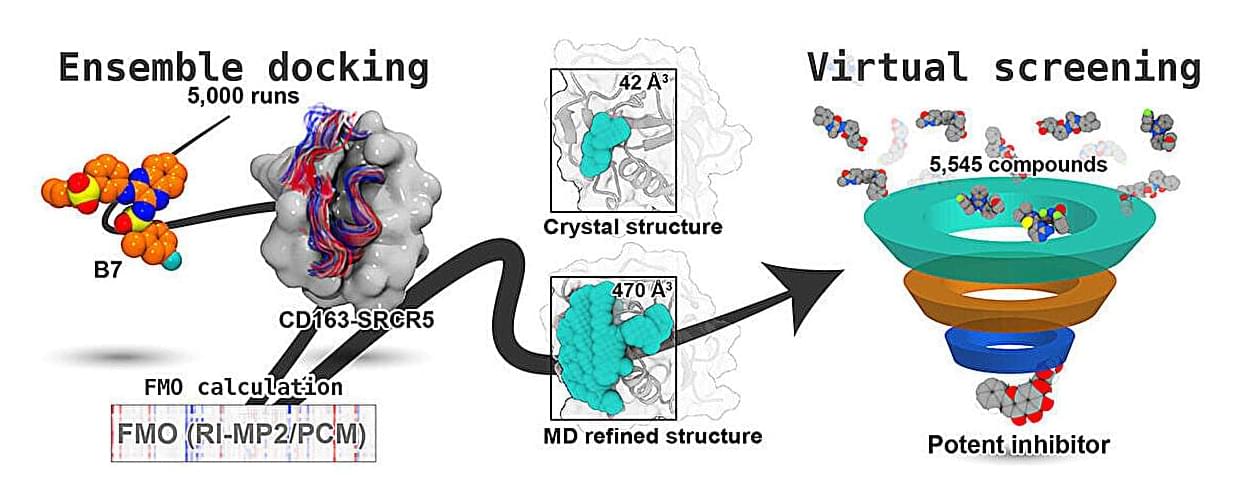Porcine reproductive and respiratory syndrome virus (PRRSV) continues to devastate the global swine industry, yet the structural basis of how small molecules block its entry into host cells remains unclear. Researchers at the University of Tsukuba and Mahidol University developed a refined model of the PRRSV receptor domain CD163-SRCR5 using state-of-the-art computational approaches, offering new avenues for rational drug design.
While traditional drug discovery often relies on static crystal structures, many biologically important proteins, including the scavenger receptor CD163-SRCR5, contain flexible loop regions poorly captured by crystallography. These loops are critical for recognizing ligands and viral proteins, making them challenging yet attractive drug targets.
In their new study published in The Journal of Physical Chemistry Letters, the researchers used molecular dynamics (MD) simulations, ensemble docking, and fragment molecular orbital calculations to generate a dynamic, physiologically relevant structural model of the CD163-SRCR5 domain.
